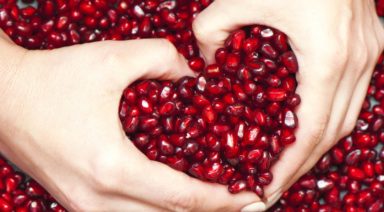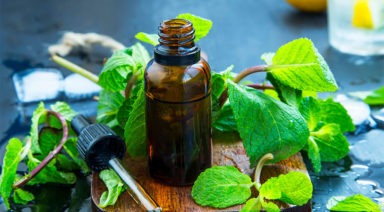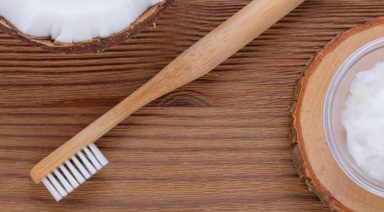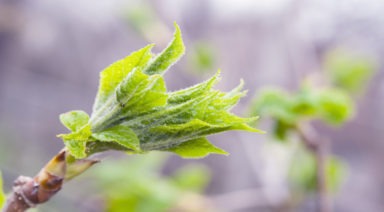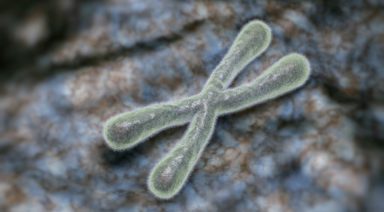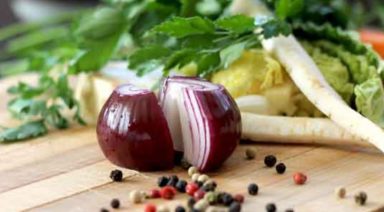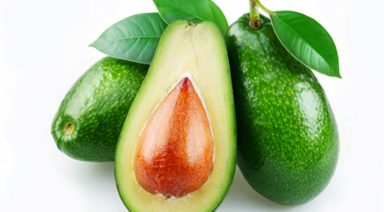17 Ways to Use Apple Cider Vinegar for Your Health and Wellness
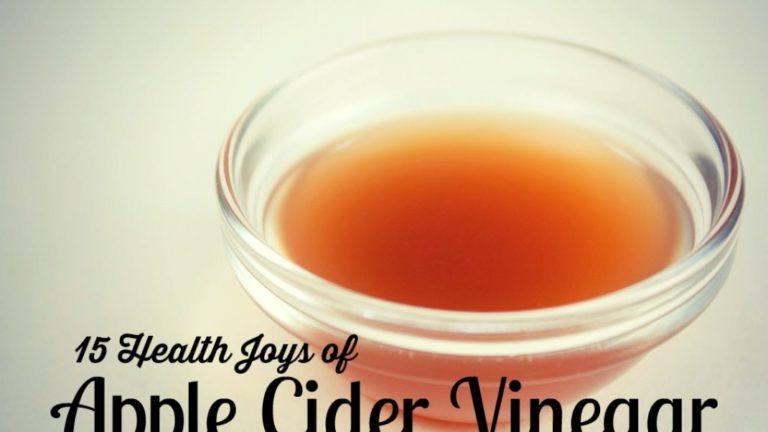
Apple cider vinegar, commonly denoted as ACV, has received a lot of hype as a miracle home remedy for all kinds of ailments, from allergies to arthritis. While a lot of conclusive research needs to be done, there are all kinds of ACV tricks you can try for your home and wellness.
What is Apple Cider Vinegar?
Apple cider vinegar is the product of fermentation—the process in which sugars in food are broken down by bacteria and yeast. In stage one of fermentation, the sugars are turned into alcohol. Stage two, if the alcohol ferments further, you get vinegar. While vinegar can be made from all sorts of things—fruits, vegetables, and grains –ACV, is, unsurprisingly, made from pulverized apples. The main ingredient of apple cider vinegar, or any vinegar, is acetic acid. It also has other acids, vitamins, mineral salts, and amino acids.
It sounds like a relatively innocuous substance more likely to be found in a salad dressing or used as a preservative, but because of its unique properties, ACV has a huge range of uses.
15 Health Benefits to Apple Cider Vinegar
Adding apple cider vinegar as a supplement to your diet can result in a number of benefits to your health. Apple cider vinegar may help with everything from heart disease to weight loss. Below is a list of 17 proven benefits.
1. Help with Heart Disease
If you’re looking for an alternative modality to improve heart health and ameliorate high blood pressure, ACV could be exactly what you’re looking for. Though clinical trials haven’t been conducted yet on humans, trials on animals have shown ACV to reduce triglyceride and cholesterol levels, two of the major contributing factors to heart disease.
2. Lower Blood Sugar
Do you experience high blood sugar levels from type 1 or type 2 diabetes? Are your insulin levels low and your glucose levels too high? Try taking ACV after meals to lower your blood sugar levels. According to research conducted from a small study in 2004, subjects taking 20mL of ACV diluted in 40mL of water with a teaspoon of saccharine, lowered their blood sugar levels after a meal. This reduction was significant, though small, and only lasted about 30 minutes.
While this method needs more research conducted before it could be considered a viable treatment, some researchers have described it as a potential adjuvant to other treatments for diabetes.
3. Leg Cramp Relief
Ever had a crazy sudden pain in your leg in the middle of the night? It’s the worst! Stop the attacks with an ACV tonic. Taken diluted in water twice daily, it will dissolve acid crystals in the blood and provide potassium, calcium, and other essential minerals to the body needed to ease the leg cramps.
4. Potential Beautifier
A lot of our beautifying products do way more harm than good. Switch them out for a simple, natural remedy!
Hair Care: use apple cider vinegar as a rinse for your hair after shampooing, and will boost your hair’s body and shine, plus fight dandruff. Try recycling an old shampoo bottle, then filling it with 1/2 a tablespoon of apple cider vinegar and a cup of cold water. Pour the solution through your hair after shampooing several times a week for dramatic results.
Clearer Skin: ACV will boost the pH of your skin, which is important for a healthy glow. All you need to do is dilute ACV with two parts water, and spread the concoction over your face with a cotton ball to replace your current toner. You can do this at night after washing, and in the morning before you apply your moisturizer. A dab of apple cider vinegar can also be left on the skin overnight to fade age spots or acne scars.
Sunburn Remedy: add ACV to bathwater to relieve the redness and pain of sunburn.
Wart Removal: soak a cotton ball in apple cider vinegar, then fasten the cotton ball over the wart with a Band-Aid overnight. The skin may swell some as it reacts with the solution. However, the wart will fall off. Once it falls off, the treatment should be continued for a few more days, to make sure the wart doesn’t return.
Bad Breath Control: due to its antiseptic properties, ACV makes a wonderful remedy for bad breath or halitosis. Simply add 2 teaspoons of ACV into a cup of water and gargle the mixture in your mouth for 10 seconds at a time and spit the solution out. Repeat until the cup is empty.
Tooth Whitener: brush your teeth with ACV! Dip a toothbrush in ACV and brush as normal.
Aftershave: Fill a bottle with equal parts apple cider vinegar and water, and shake before applying to the face.
5. Energy Zip
We could all use a little more energy to get through our days. Exercise and sometimes extreme stress cause lactic acid to build up in the body, causing fatigue. Apple cider vinegar contains potassium and enzymes that may relieve that tired feeling. Next time you’re starting to sag in energy, add a tablespoon or two of apple cider vinegar to a glass of chilled vegetable drink or to a glass of water.
6. Tummy Tamer
Got tummy trouble? Sip before eating, especially if you know you’re going to indulge in foods that cause indigestion. Add 1 teaspoon of honey and 1 teaspoon apple cider vinegar to a glass of warm water and drink it 30 minutes before you dine. It’s useful for diarrhea, as well! The pectin content in ACV helps treat diarrhea by forming bulk fibrous matter. The pectin also forms a protective coat for soothing the colon lining and intestinal spasms. Try mixing one or two tablespoons into water, or clear juice like apple juice.
Because ACV is fermented, it’s also a probiotic supplying healthy bacteria to your gut.
7. Sinus Clearer
Your sinuses are the pathways in your nasal cavity between the cheekbones and forehead. When bacteria or allergens reach your sinuses, they can cause excess mucous production and subsequent blockage. Because apple cider vinegar naturally bonds to these pathogens it can help clear that blockage. Diluting a teaspoon of apple cider vinegar in a glass of water and drinking it, can help thin mucous in the sinuses, allowing them to drain and pressure to relieve. You can also try adding some lemon juice to taste.
8. Sore Throat Buster
As soon as you feel the prickle of a sore throat, take some ACV to help head off the infection at the pass. Most germs can’t survive in the acidic environment vinegar creates. Just mix ¼ cup apple cider vinegar with ¼ cup warm water and gargle every hour or so.
9. Massage/Swelling Treatment
Rubbing apple cider vinegar on your hands and feet will give massage-like benefits to tired hands and feet. Plus, it can reduce swelling, which is perfect for pregnant ladies looking for a little relief!
10. May Aid Weight Loss
It’s all in the acetic acid! In a 2009 study published in Bioscience, Biotechnology, and Biochemistry, it was found that subjects that consumed acetic acid for 12 weeks experienced significant declines in body weight, belly fat, waist circumference, and triglyceride levels. Triglycerides contribute to the bad cholesterol that we want to avoid.
Add 2 teaspoons of unfiltered apple cider vinegar to 16 ounces of water to help manage your weight. This concoction can be sipped throughout the day. Data shows some limited, yet significant, weight loss benefits from sustained daily intake of acetic acid (the main ingredient in apple cider vinegar).
(keto, drinking apple cider vinegar diet, calorie diet, carb)
11. Bodily pH Level Regulation
The body constantly strives to achieve a state of equilibrium. Apple cider vinegar helps the body maintain a healthy alkaline pH level. Research shows that higher acid levels (lower pH level) lead to a lack of energy and higher incidences of infection. Hence, my desire to sip some a few times a day for a natural boost of energy.
12. Liver Cleanser
As part of balancing the body’s pH, apple cider vinegar creates an overall detoxification of the body. Research shows that it can help stimulate cardiovascular circulation and help detoxify the liver.
13. Lymphatic System Cleaner
ACV helps to break up mucous throughout the body and cleanse the lymph nodes. Believe it or not, research suggests that apple cider vinegar can help with allergies because of its ability to reduce mucous and sinus congestion. When reducing the effects of allergies, it can also help stave off sinus infections and their related symptoms, such as sore throats and headaches.
14. Candida-Begone
This vinegar is rich in natural enzymes that can help rid your body of candida—yeasts that are attributed to thrush in humans. Candida, dubbed “The American Parasite” by some, also is blamed for creating symptoms of fatigue, poor memory, sugar cravings, and yeast infections. All in all, it’s something you want to avoid at all costs.
15. Heartburn Reducer
What? Treating acid reflux with an acid-containing vinegar? It’s true, it does help! Research suggests that apple cider vinegar works by correcting low acid, hence reducing heartburn. Natural remedy experts say you should begin to feel relief very shortly after taking a teaspoon of apple cider vinegar followed by a glass of water. However, if you have an ulcer, you’re out of luck, as ACV will not give relief with one of those.
16. Pet Flea Repellent
If you notice the creepy crawlies on your pets, it’s time to grab some ACV before it gets worse! One part vinegar and one part water can be sprayed on your pet’s fur and rubbed in generously to the skin. Saturate the entire coat, and continue every day for a few days to a week. Any flea infestation will head for the door.
17. Nontoxic Cleaner
Sick of harsh chemicals in your home (literally)? ACV is the antibacterial cleaner for you! You can use it to clean things like your toilets by pouring apple cider vinegar into the toilet and allowing it to sit overnight. The acidic properties will get to work on the germs and grime. It can also be used in dishwashers as a substitute for dish detergent. Mix 1/2 cup of apple cider vinegar with 1 cup water, and you can use this solution to clean microwaves, kitchen surfaces, windows, glasses, and mirrors, too.
Any Side Effects?
While there are plenty of benefits, one should always exercise caution with the consumption of something as highly acidic as ACV. While often used as an effective cleanse, ACV can lower your potassium levels and cause your body to lose essential minerals, so it’s always important to be mindful of this.
Drinking a large amount of undiluted ACV can burn your esophagus and wear away at tooth enamel. But it’s not just undiluted apple cider vinegar consumption that can cause problems, as you can still wreak havoc by overconsuming the diluted stuff too.
Many side effects can occur from overconsuming ACV, so be mindful of how your body reacts when you start a regimen. And as always, you should always consult a physician to ensure your body doesn’t have any preexisting health conditions or won’t have adverse reactions to regular consumption of ACV.
Updated by Gaia Staff 9/10/20
What Your Food Cravings Really Mean

Ever had a craving you just can’t shake? Is there only one particular food that can always pull you out of an emotional rut? Have you ever wondered where the phrase“Eat your feelings” even comes from or what causes food cravings in the first place?
Of course, you have! You’re only human! Most people accept food cravings as a normal part of everyday life without really ever asking what these food cravings mean.” No two bodies are the same, and therefore no two reasons behind a specific food craving are the same. While some may be rooted in nutritional deficits – others may be a deeper signal from our Spirit echoing throughout our bodies.
Your mind, body, and Spirit communicate through an intricate language, which isn’t always easy to decipher. However, with a little effort, you can translate these signals and create the harmony needed for improved health.
For most, we’ve been taught to “overcome” our bodily cues with medicine or supplements. For example, when a person has a headache, they’re taught to reach for the Advil bottle rather than lying down and drinking lots of water. However, no matter how much you resent, ignore, or overlook your bodily cues – they’re not going to go away.
When looking at a type of food craving specifically, emotions are one of the most common causes of binge eating. Cravings that cause emotional eating tend to manifest themselves when we feel vulnerable. Rather than expressing fluctuations in our emotions, we tend to stuff them down with “comfort foods” that give our bodies a false sense of fulfillment. After a while, your body learns this routine, creating cravings that, when satiated, provide a short-term boost of chemical components. By deciphering the real meaning of your cravings, you can get insight as to what’s truly gnawing at you from within.
Gaining knowledge about what our cravings can mean, whether through personal research or consulting with a dietitian, may help us to reduce unhealthy habits and poor food choices that may lead to undesirable outcomes like weight gain and obesity. The following are the three most common food cravings and a starting point for you to decrypt what your mind, body, and Spirit are trying to tell you.





